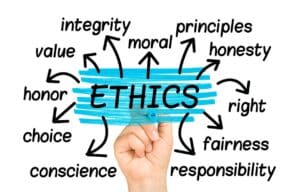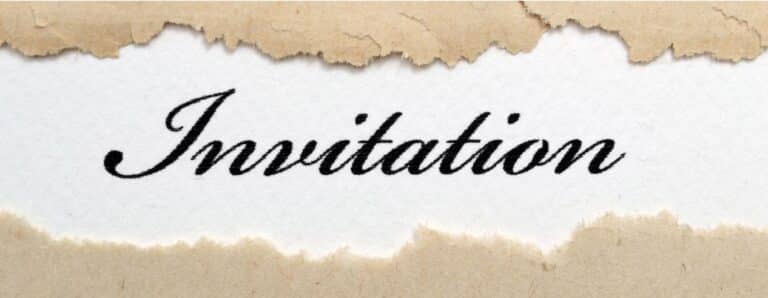The power of language, and how we use it, has always fascinated me. I have a wonderful friend whose use of language is just exemplary – he uses phrases and pacing in sentences that draw you in. I know someone else who will use his words as a weapon, and more often, I am seeing in the workplace and in life, individuals who will take someone’s words, twist them and create something completely different. What is happening to our use of language?
If I reflect on society, there is a strange phenomenon at work. Increasingly, it seems that when something is said with conviction, it is received as truth. Evidence, depth, practice and even reality itself often trail behind the loudness of the claim. What matters less is whether something can be substantiated; what matters more is that it is said, repeated and amplified, and I am sure you can recall many examples of individuals doing just that in politics.

This is not new in human history, but the conditions of our time, the speed of social media, the rise of ‘fake news,’ the algorithmic reward of outrage and the concept of being ‘cancelled’, have accelerated and normalised it. What once might have taken decades to settle into cultural narratives now spreads across the globe in minutes, even seconds!
In this article, I want to reflect on how we got here, what this means for the way we live and work and how do we hold integrity when truth itself feels so malleable.
Table of Contents
The Rise of ‘Truth-by-Assertion’

Again, returning to politics there is where it is perhaps the most visible. Leaders across the world have repeated false claims until they became accepted as fact. From ‘weapons of mass destruction’ in Iraq to election slogans that implied entire countries could be reshaped overnight, repetition often mattered more than evidence.
But politics is only one sphere. On social media platforms, influencers promote ‘miracle’ wellness cures with no scientific backing, financial gurus promise overnight wealth through quick-fix trading apps, and AI-generated posts create authoritative-sounding narratives that spread faster than they can be checked. Once an idea lands, it is retweeted, reposted, quoted and echoed until it feels familiar. And familiarity, psychologists tell us, is often mistaken for truth.
The more we see or hear something, the more likely we are to believe it. This is not a failing of intellect but a quirk of the human brain. Our neural pathways are wired for pattern recognition and efficiency. ‘I have seen this before’ easily becomes ‘this must be true.’
So the conditions are ripe for what I call ‘truth-by-assertion.’ It is no longer whether something is true, but whether it is believable enough to repeat.
To see how this has played out, we only need to look at the recent history of fake news.
A Recent History of ‘Fake News’

It is tempting to see this as a uniquely political problem, but it has extended into almost every sector. During the COVID-19 pandemic, misinformation about cures, vaccines, and government measures spread globally. Some of it was shared in good faith, people desperate for hope. Much of it was amplified by those seeking power, profit, or simply attention.
Closer to home, we encounter fake news in the workplace. A rumour that a department is closing, or that a new director plans mass redundancies, can take hold with astonishing speed. Even when leaders issue clarifications, the rumour often feels more convincing than the official statement. Why? Because it was shared quickly, emotionally and repeatedly. And so it felt true.
And if organisations can be shaken by rumours, it is little surprise that individuals, too, have learned how to bend words into something that feels like truth.
When Words Masquerade as Skills
This ‘truth-by-assertion’ does not only apply to news and politics. I have seen it emerge in recruitment at Sandown Business School. Candidates arrive armed with all the right language: fluent in the rhetoric of leadership, agile in describing coaching, eloquent in naming frameworks. Yet when we press into their actual experience, or we delve into the how they are going to do all the wonderful things they say they can do, suddenly the substance falls away.
What is sobering is that these individuals were not deliberately lying. They were reflecting a cultural environment where saying something, in the right tone, with the right keywords, is increasingly seen as enough. They had learned that in the modern marketplace of words, performance often matters more than practice.
Part of this may be explained by the way recruitment itself has shifted. Increasingly, the first round of applications is screened not by a person but by AI, scanning for keywords and tick-box criteria. The result is that candidates quickly learn the language they need to ‘get through the system.’ But having the right words is not the same as having the right substance. In earlier times, recruitment placed more weight on the narrative of the individual, their stories, their depth, their human qualities, alongside their technical skills. In the effort to speed up the hiring process, are we in fact slowing down the discovery of exceptional individuals who could be a genuine fit for the role?
This is not only about applicants. I have seen leaders in organisations present themselves as ‘champions of culture’ while making little effort to actually create a positive culture, and certainly not champions in the organisation – but they have a good rhetoric! I have seen managers promote their expertise in ‘wellbeing’ while privately disregarding the wellbeing of those closest to them. Words can paint a compelling picture, but integrity is revealed in the lived reality behind them.
As Edgar Schein so beautifully put it, the real test is the gap between what we espouse and what we enact.
These moments raise a deeper question: if words are enough to persuade, what becomes of ethics and integrity?

Why Does This Matter?
On the surface, one might say this is simply human nature. We have had generations passing down stories that have enriched and enhanced our lives. We also know people embellish. Societies spin narratives. Truth has always been contested.
But something deeper is shifting. The acceptance of ungrounded claims is becoming normalised. The moral and ethical guardrails that once demanded evidence, accountability, or consistency are loosening. If saying something makes it true, or at least useful, then why bother with integrity?
This is the danger I want to name. It is not just about whether a fact is correct. It is about the erosion of trust. When words can no longer be trusted to carry weight, we begin to doubt not only institutions but also one another.
In organisations, this is particularly corrosive. Leaders are asked to make decisions based on information. Teams are asked to collaborate on shared realities. If the ground is constantly shifting, if people feel free to say whatever suits them in the moment, then the very possibility of collective action is undermined.
We only have to look at recent corporate scandals to see how this plays out. Banks selling financial products they knew were toxic, tech companies promising privacy while quietly harvesting data, and charities making pledges about safeguarding while failing to live them out. The gap between words and actions erodes confidence not just in leaders, but in the very systems they represent.
A recent example within my own world, coaching and leadership, illustrates this all too clearly. Without naming names, a CEO of a coaching business claimed to hold the MCC credential from the ICF (International Coaching Federation). They did not. What I find sad is that this individual felt the need to promote an untruth in order to what? Gain a competitive advantage? Elevate their standing? Why is being who we are suddenly not enough? Why do we feel the need to compromise ourselves in order to get ahead? We even teach about this; it is part of the ‘prostitute’ archetype, an archetype that unfortunately seems to be gaining energy in our times. And if this can emerge within coaching, a field that rests on presence and authenticity, how much more likely is it to surface in places where accountability is weaker or less visible?

And so we arrive at the heart of the matter: ethics.
The Ethical Challenge
So how do we navigate this? How do we hold our own integrity in a world where the currency of words is devalued? How do we continue to value integrity when, in some spaces, integrity itself feels diminished, when standing out, being visible at any cost, or amassing followers becomes the path to identity, significance, power, or reach?
Part of the difficulty lies in the fact that morality and ethics are not uniform. What feels like integrity to me may not feel like integrity to you. And I am conscious of that even as I write this article. Some may well say, “What is the problem? Times are changing, adapt, evolve, grow, or risk being left behind.” In this sense, cultural backgrounds, personal values, religious frameworks and professional codes all create different reference points.
Yet, I wonder: are there commonalities we can still hold to? How can we ‘chunk up’ to find a common point of reference? In NLP (Neuro-Linguistic Programming), ‘chunking up’ is the process of lifting a conversation to a higher level of values or vision until shared ground is found. It is from this place that a common statement can emerge, and only then do we work back down into the practicalities. I often use this in mediation, and it strikes me as a useful metaphor for this wider question of integrity.
When I ‘chunk up’ in my own reflection, what I arrive at is this: integrity is coherence. It is not about perfection but about accountability. The question is how to hold that in a noisy world.
The ethical question, then, is how to live with integrity when surrounded by noise. How to keep aligning words with actions, even when others seem unbothered by the gap.
Perhaps the best way to explore this is not through answers, but through the questions that trouble us most.
Raising the Disruptive Questions
Those who know me will know I do love a strong question. I do not have neat answers to those questions – but at least they start our reflective practice. Here are some questions I would like to raise that are currently in my system – and perhaps in yours too:
- When words alone can be mistaken for truth, how do we discern substance from performance?
- What practices help us test the integrity of others and ourselves, beyond the language we use?
- How do we build cultures in organisations, communities, and families where accountability matters more than rhetoric?
- Is it possible to re-anchor public life in shared commitments to honesty, or are we entering a post-truth age where that hope is naïve?
- How do we hold on to moral and ethical principles when those very terms are defined so differently across societies?
Perhaps most importantly: What does it mean to lead in this environment?
Leadership in a Post-Truth World

If ‘truth-by-assertion’ has become the norm, then leadership must involve resisting that temptation. To say less but mean more. To refuse easy slogans and instead invite honest dialogue. To risk vulnerability by admitting uncertainty rather than dressing it up as certainty. This is not easy. It is slower, less glamorous, often less rewarded. But it may be the only way to rebuild trust.
We have seen the consequences when leaders fail in this regard. Corporate collapses where the glossy words of annual reports masked dangerous practices. Political leaders insisting ‘all is well’ while ignoring crises unfolding on their watch. Even in the charitable sector, there have been moments when fundraising narratives promised transformation while failing to deliver for those most in need.
And yet, we have also seen leaders who model the opposite. Leaders who own mistakes openly, who apologise without defensiveness, who enable their teams to see the process of learning as much as the outcome. Leaders who speak quietly but act consistently. These are the ones whose words carry weight because they are backed by reality.
A Call Back to Integrity

In a world where language can be manipulated and truth can be stretched, integrity becomes radical. Now, isn’t that a thought? Integrity is actually radical. It is each of us being able to say what we mean and mean what we say. It is allowing our actions to confirm our words. It is refusing to play the easy game of assertion without substance. It is neutralising the “prostitute” archetype and beginning to emerge, knowing that being who we are is enough.
There are consequences to living without integrity, and sadly, we are seeing more of them in our world. Trust dissolves across every aspect of our lives. In business, teams fracture. Leaders lose legitimacy. At its worst, entire cultures slide into cynicism, where nothing is believed and everything is performance, where simply saying something makes it “true.” With integrity, by contrast, there is coherence. People know where they stand. Words regain their weight. Trust can be rebuilt.
And there are examples where integrity has been lived, not just spoken about. One is a leadership example: Jacinda Ardern, New Zealand’s former Prime Minister, who, during crises, chose honesty over polished soundbites. She admitted uncertainty, spoke with empathy, and fronted difficult truths rather than dressing them up. Whether or not one agreed with her policies, her coherence of word and action created trust, not because she was perfect, but because she was real. Another is organisational: Johnson & Johnson, faced with the Tylenol poisoning crisis in the 1980s, chose to recall 31 million bottles from shelves at enormous cost. They did not hide behind corporate spin. They told the truth, took the loss, and rebuilt trust. It became a case study in integrity, not as rhetoric but as decisive action. Choosing integrity can change the course of leadership, of organisations and of society.
Now, please do not get me wrong: I do not claim to have mastered this. Integrity is not a badge to be earned once and for all, but a daily practice. It requires courage, the courage to stand apart when shortcuts are rewarded, to admit mistakes when image would prefer silence and to hold steady when noise invites compromise. Integrity is not a static achievement, but I believe it is the compass we need if we are to navigate these times.
So, I offer this not as a lecture but as an invitation. To pause before we speak. To ask ourselves: is this true, or just useful? Is it grounded in practice, or only in performance? Does it reflect who I am, not just who I want others to think I am?

Closing Thoughts
When words alone can masquerade as truth, we are called to be discerning. To notice not just what is said, but what is lived. To refuse the seduction of performance without practice. To listen more closely to our gut, which grows quieter when it is ignored. I know this from experience; there have been too many times I have not listened and then had to deal with what followed. Our gut often recognises misalignment before our mind does. It is another compass for integrity, if only we are willing to listen.
As leaders, as colleagues, as citizens, we need to know what we can control – and what we can’t. We cannot control the noise around us, but we can control how we show up – choose our energy patterns and learn how to self-regulate in EVERY situation. We can choose integrity, even when it is unfashionable. We can choose to anchor our words in actions, our values in coherence, our lives in alignment.
Perhaps that is where the commonality lies: in the simple human yearning for trustworthiness. We may differ on many moral and ethical points, but somewhere beneath them all is the desire to know that what is said is, at least, intended to be true.
And if enough of us hold to that, maybe words will once again mean what they are supposed to mean.

Pheona Croom-Johnson
Co-Founder and Academic Director of Sandown Business School. She has been in the OD field for over 35 years, partnering with Coaches, C-Suite and Senior Leaders.
Pheona is a triple credentialed Master Coach (ICF, EMCC, AC), Master NLP Trainer, Team Coach Supervisor (ACTC, ICF) and credentialed Supervisor (ESIA, EMCC), IFS Trained therapist (Level 1) with psychological foundations and training (BPS). She has an MA in Psychological Coaching and an MSc in Psychology of Change Agency.
Get in touch to find out more about coaching, leadership and/or supervision.
Share this article:





